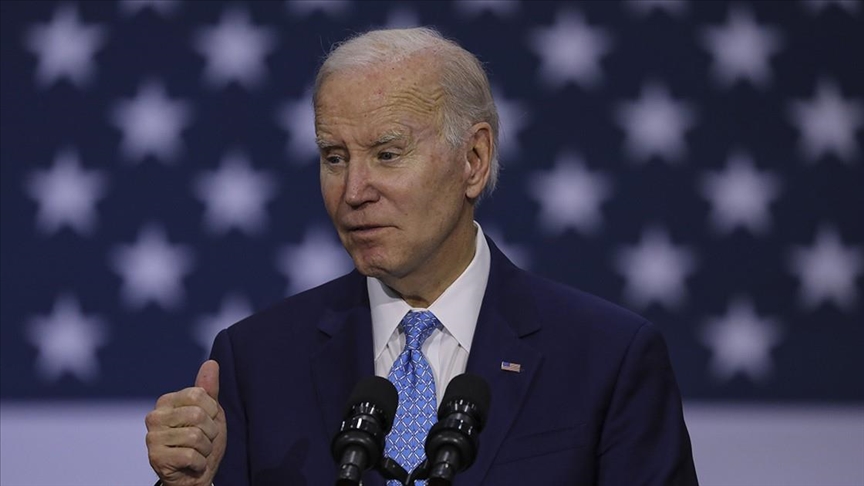

By Anadolu Agency
WASHINGTON
US President Joe Biden released Thursday his new plan to thwart the threats posed by weapons of mass destruction (WMD) amid rising tensions between the world’s nuclear-armed superpowers.
The new strategy advances Biden’s national security agenda by “protecting our nation and the international community from the existential threats posed by WMD terrorism and preventing non-state actors from using chemical, biological, radiological, and nuclear weapons,” the White House said in a statement.
“Reducing, eliminating, and securing radioactive and nuclear materials are the most effective means to prevent their acquisition and use, and through the implementation of policies and priorities detailed in this NSM, the United States will advance efforts to prevent WMD terrorism,” it added, referring to the national security memorandum.
The strategy has three core goals, including preventing sub-state terror groups from acquiring nuclear weapons, advancing the security of existing nuclear stockpiles and bolstering radioactive materials’ security.
“Together with our domestic and international partnerships, these policies will continue to advance longstanding efforts to prevent proliferation and to counter and reduce threats of WMD terrorism at home and abroad,” the White House said.
The strategy comes, however, amid dwindling nuclear safeguards and a growing number of nuclear arms, notably in China.
Russia, who has repeatedly engaged in nuclear saber-rattling during the course of its war against Ukraine, formally suspended its participation in the last remaining nuclear pact with the US. The New START Treaty limited their nuclear arsenals on site, and allowed for either nation to inspect the other’s stockpiles.
Washington and the Kremlin remain the countries with the largest nuclear stockpiles, amid questions over how expansive China’s program really is.
Russia and the US accounted for some 90% of the world’s nuclear arsenal in 2022, according to the Federation of American Scientists, a think tank that seeks to curtail the use of nuclear arms. China, meanwhile is among a group of six nations — India, North Korea, Pakistan, Russia, and the UK being the others — increasing their stockpiles.
We use cookies on our website to give you a better experience, improve performance, and for analytics. For more information, please see our Cookie Policy By clicking “Accept” you agree to our use of cookies.
Read More